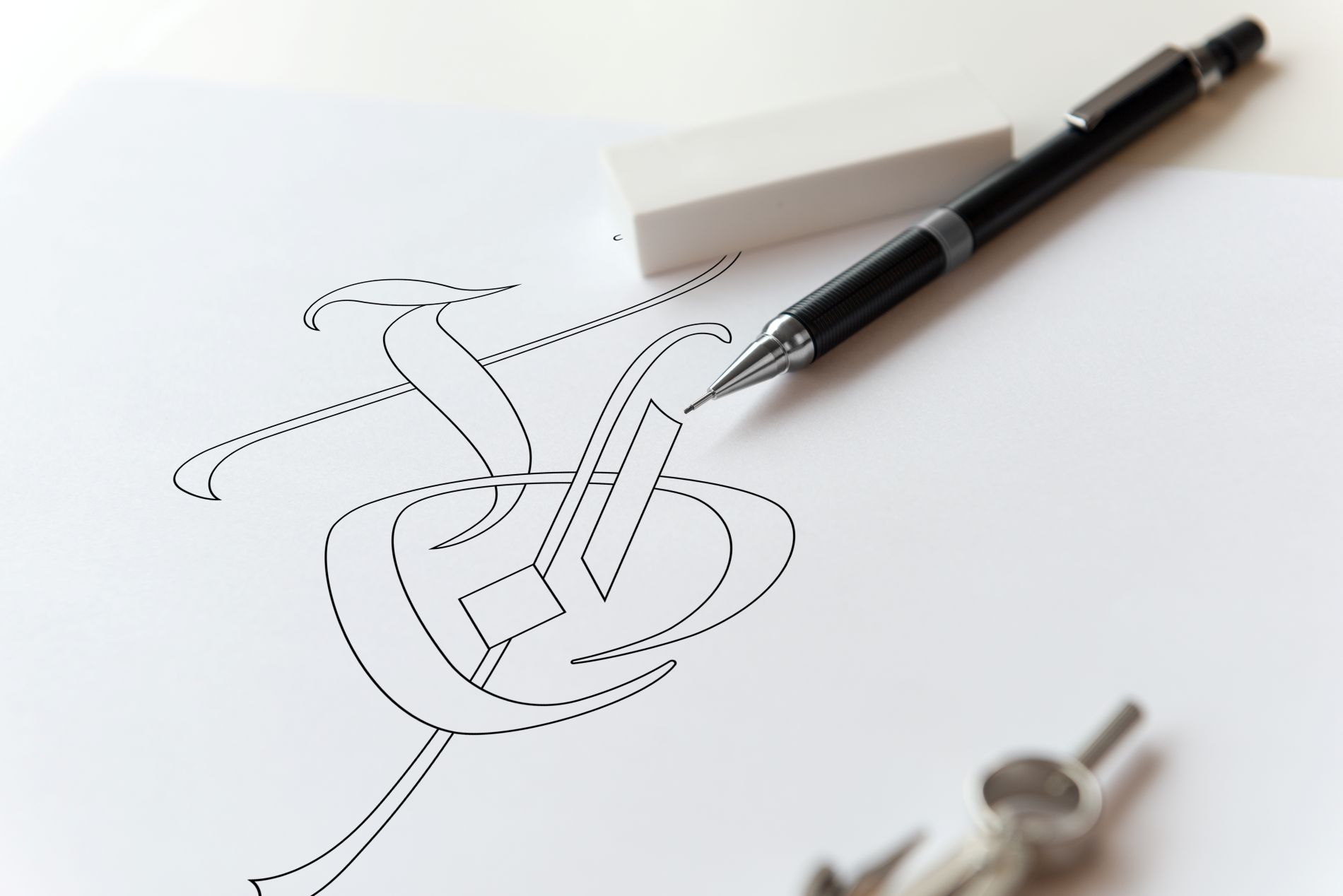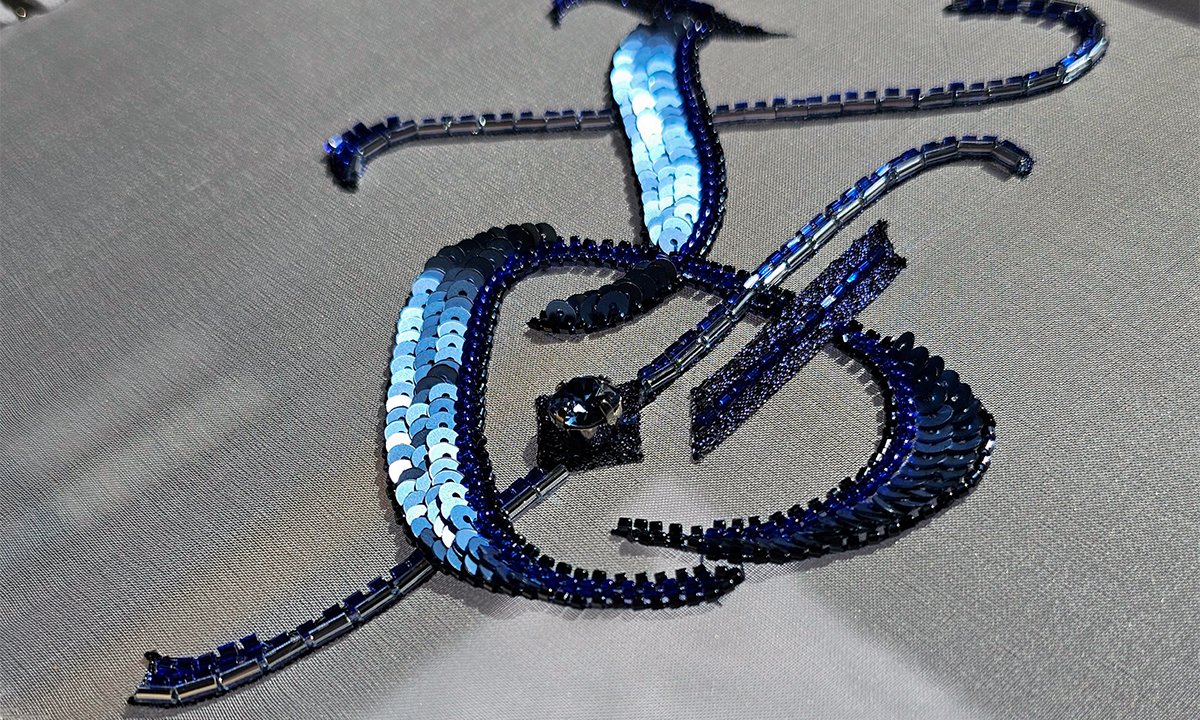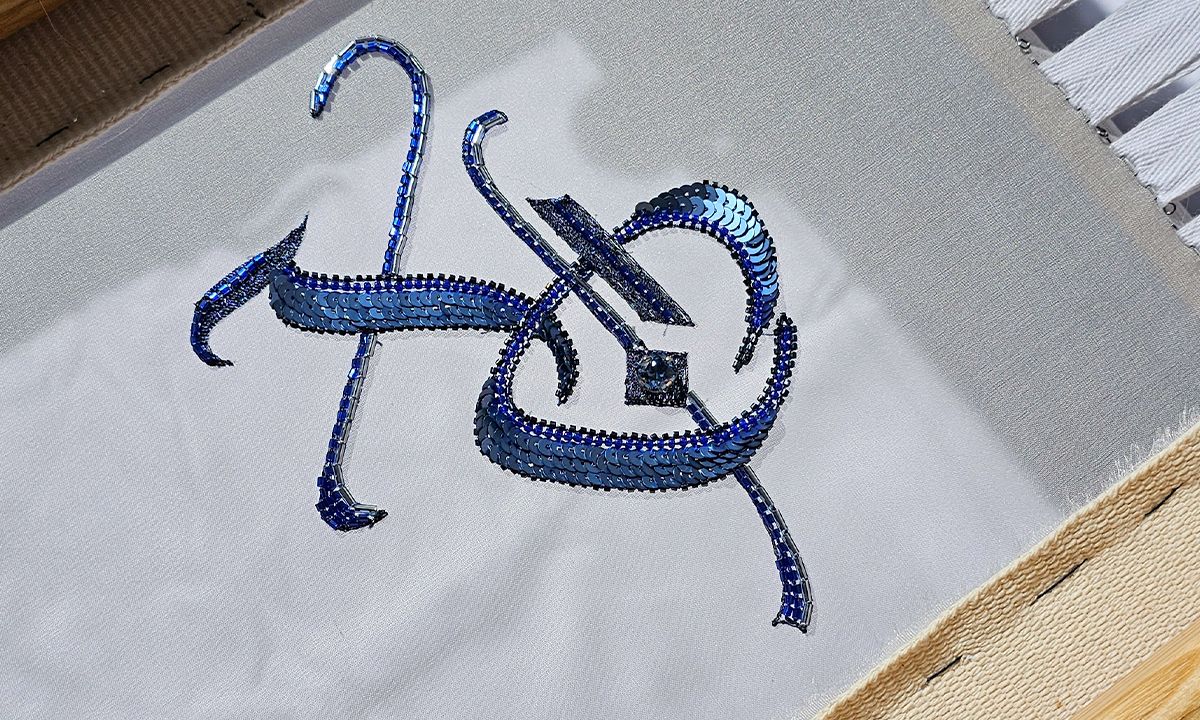Why My Beginner Luneville Embroidery Course Starts with Letters, Not Florals
New to Luneville embroidery?
Start with the chain stitch—my free visual guide shows you exactly how
If you’ve ever looked up Luneville embroidery, you’ve probably seen a lot of flowers. Soft shapes, butterflies, scattered petals — and if you’re new to the technique, that might seem like the only option.
But when I designed my Introduction to Luneville Embroidery course, I didn’t want to offer just another flower.
I chose something different—structured and graphic:
A gothic-style “XO.”
It’s not random. This composition was carefully planned for beginners — not just for aesthetic impact, but to help you learn technique clearly and confidently. And unlike so many beginner-friendly projects online, this one leads to a finished result that actually looks complete.
Why This Course Doesn’t Begin with a Floral Motif
Florals are beautiful, and they’re a common starting point in embroidery for good reason. But they’re not always the clearest path when you’re first learning Luneville technique.
Organic shapes often rely on loose curves and spacing that’s open to interpretation. That flexibility is great once you have control — but when you’re just learning to use the tambour hook, it can be disorienting. You can’t always tell if the stitch is off or if the drawing is just soft.
That’s why I chose a composition with built-in structure. Something that gives your hands direction, gives your eye feedback, and gives your confidence a better chance of growing.
What the “XO” Composition Teaches

The final project in this course is the gothic-style lettering “XO,” fully stitched with Luneville techniques.
This composition is designed to help you:
Develop confidence using the tambour hook
Practice controlled lines and curves with visible structure
Understand spacing and form through a balanced design
Work toward a finished piece — not just samples or stitched fragments
You’ll start by learning the tambour chain stitch, practicing small forms, and building coordination. Materials like beads and sequins are introduced later in the course — once your foundation is in place. They're used in the final project to complete the composition, but the emphasis remains on technique, not decoration.
The result is something that teaches real skill — and still looks like a finished piece when you’re done.
Why “XO”?

Because this is an online course, and “XO” is a small reference to the digital world many of us are already part of. Hugs and kisses, sure — but also a short, bold composition that can carry encouragement, humour, or just a bit of charm.
The letterforms are gothic in style for a reason. This visual language brings in structure, contrast, and even a sense of heritage. And the design allows for small variations and embellishments without losing its clarity.
In short: it’s personal, but it also works. It gives you room to learn, and a reason to finish.
If you want a wider context for how text is used in fashion, I’ve also published an article that looks at recent runway examples where lettering becomes part of the construction or surface design.
What Happens After
If florals are what you love, they’re not off the table. I teach them in other courses, where the focus is on texture, layering, and expressive design. But they come after this — not before.
This beginner-level course is about getting grounded in the technique. By the time you finish it, you won’t just be more confident — you’ll be better prepared to handle more advanced designs and materials.
What You’ll Learn

How to stretch silk organza on a frame and transfer your pattern
How to hold and control a tambour hook — even if it’s your first time using one
Tambour chain stitch and essential exercises to build stitch control
How to complete a structured composition from start to finish
When and how to use beads and sequins as part of a finished design
How to secure your thread ends and stabilise your embroidery for long-term use
Curious? Join the course and try it yourself.
If you're looking for a serious, focused introduction to Luneville embroidery this course was made for you.
Written By
Ksenia Semirova
MA Textiles
An experienced hand embroidery and textile artist based in Hove, UK. Professionally practicing since 2021, mastering various techniques.
Also a fine artist and visual researcher, exhibiting her works across the UK and internationally.
Join my mailing list
Get the latest and greatest updates to your inbox!